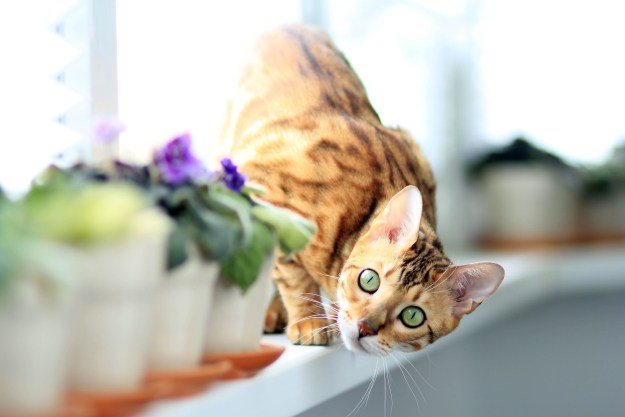
Like other cats, your large cat probably enjoys jumping, exploring, and hiding. Although standard cat towers aren’t always suitable for these types of cats, that is no reason for them to miss out on the sensation of playing on a cat tower! Special cat condos made to hold large cats exist and are just as accessible and affordable as standard cat condos.
Cat condos intended for large cats are usually wider and more reinforced than standard cat condos. These cat towers were specially designed for larger cats to enjoy without fear of breaking. Be sure to buy a strong cat condo or one made for large cats if you do have a large or heavy cat. Let’s have a look at a few of the best cat condos and towers for large cats.
FEANDREA 67 inches Multilevel Cat Tree for Large Cats
Best for Perching up High

FEANDREA’s 67 inches Multilevel Cat Tree for Large Cats measures more than 5 feet tall! It is therefore a fantastic place for large cats to explore. This cat tower includes five raised levels for cats to lounge on. It has a strap to attach the wall to prevent it from tipping. Its reinforced posts are covered in sisal rope to provide a scratching surface.
On2Pets Multilevel Modern Cat Trees
Best Design

The On2Pets Multilevel Modern Cat Trees looks like a real tree! It has a grasslike base and a central post designed to look like a tree trunk. It can support cats that weigh up to 32 pounds. This cat tree tower is intended for indoor use only. Its perches are made of pressed wood.
FEANDREA Cat Tree for Large Cats
Best Overall

The wide FEANDREA Cat Tree for Large Cats was really designed for large cats, as its name implies. Part of its special design for larger cats includes reinforced, extra-thick posts. The posts are still lined with sisal rope, like other cat condos, to provide a scratching surface. It has a cushioned top for cats to lounge on. It also has two cubbies for them to hide inside of.
Cat towers give your cat their own dedicated space in a home probably mostly laid out for human pleasure. Even if your cat is large and doesn’t fit in a standard cat condo, you can purchase a large cat tower that is wider and more reinforced to support them.


